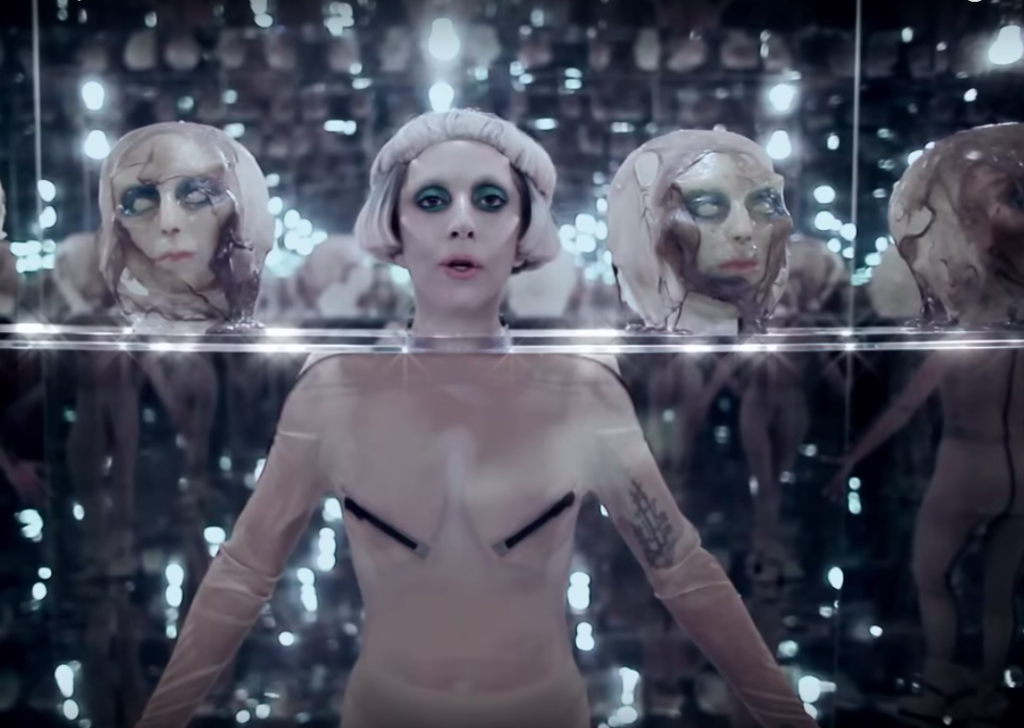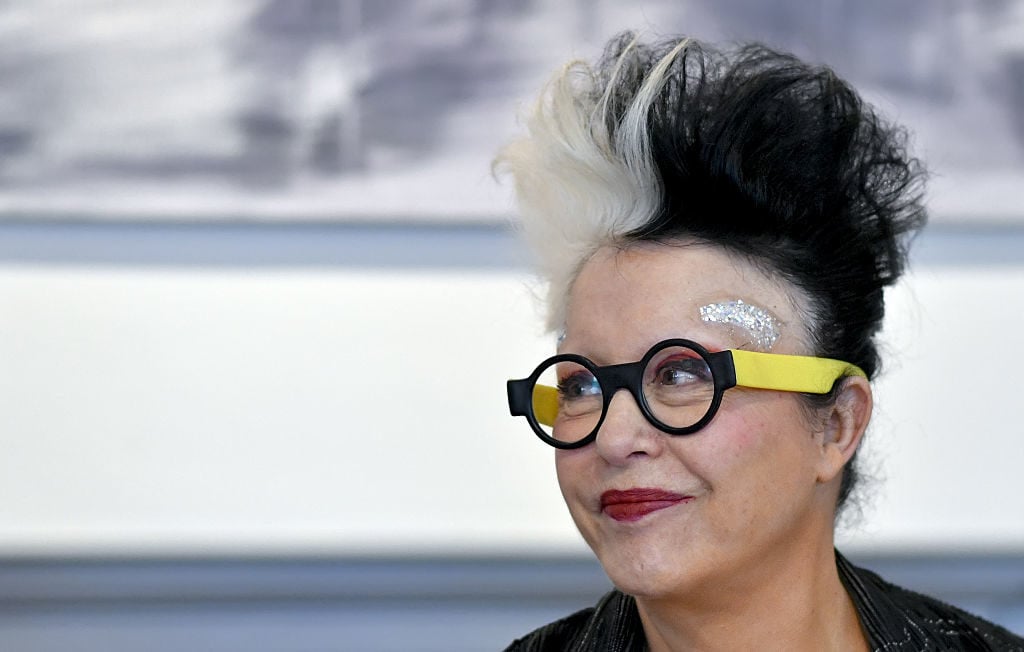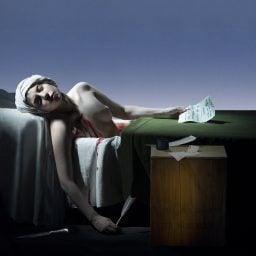The French visual artist Orlan has lost her appeal in an intellectual property infringement lawsuit against Lady Gaga. Orlan claimed that the pop star stole imagery from her work to create the music video for Gaga’s song Born This Way. A French court disagreed—and now, that loss will cost Orlan a pretty penny.
The artist has been ordered to pay €10,000 ($12,000) in legal fees to the pop star and €5,000 ($6,000) to Universal Music Group Recording and Universal Music France, according to the French newspaper Le Journal des Arts.
Orlan first sued Gaga in 2013. At the time, she claimed that the music video for Born This Way ripped off two of the fictional characters that appear in her own videos: Bumpload (1989), in which Orlan wears prosthetics and sports raised bumps on her cheeks and forehead, and Woman With Head (1996), in which she presents a decapitated head on a table. The artist sought $31.7 million for multiple infringements on her intellectual property rights. Paris’s High Court ruled in favor of Gaga in 2016.
In her appeal, filed earlier this month, Orlan dropped the charge that the singer had counterfeited her work, but maintained that Lady Gaga was guilty of “free-riding”—delightfully called “parasitisme” in French—meaning that she purposefully took advantage of Orlan’s “notoriety or investments” without compensating her.

Screenshot from Lady Gaga’s video for the song Born This Way.
French law dictates that artistic ideas, however developed and precise, cannot be protected by copyright. But the “free-riding” charge offers creators some protection for key concepts and innovations. In order to successfully claim that one artist is free-riding on another’s coattails, the aggrieved party must prove that the alleged infringement created confusion between their artistic universes (leading audiences to believe, for example, that Lady Gaga’s video was an extension of Orlan’s work). The artist must also prove that he or she has been an inspiration to the accused party.
In the end, these proved to be obstacles for Orlan. The court ruled that there was no confusion because the two artists don’t share an audience. It “does not appear that [Orlan and Lady Gaga] are in a competitive situation,” the court said. The court also concluded that Lady Gaga did not, in fact, benefit from an association with the French artist. Furthermore, the court determined that the works under examination were of a different, not overlapping, nature—one was a visual artwork, and the other, a music video and album cover.
Orlan was also unable to produce any evidence that Lady Gaga had sought to take advantage of her creations, the court added. The singer previously stated in an interview that she did not know who Orlan was.
The French artist also claimed the infringement of her image rights, although in the appeal she reduced the scope of this complaint to damage suffered in France, rather than worldwide. The court ruled that the French artist was unable to prove that the American singer had appropriated “her appearance, the characteristic elements of her physical identity or her notorious accessories,” and noted that, after the Born This Way video, Gaga never released anything resembling her image again.










